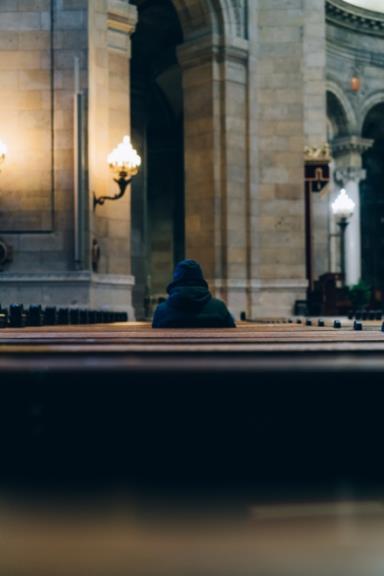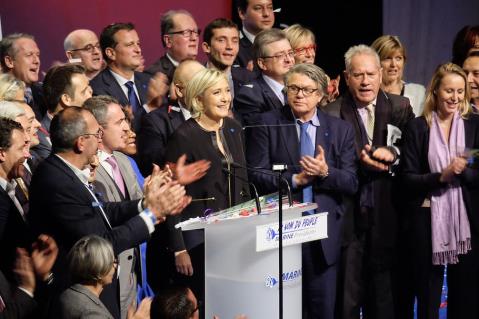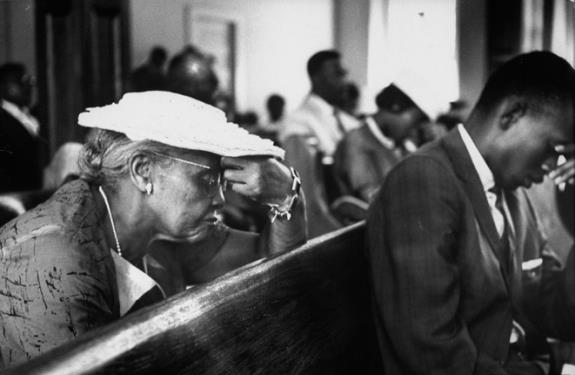
![]() Church attendance in the mainline Presbyterian Church (USA) has actually increased for larger congregations during the pandemic, while it has dropped for smaller churches, according to a survey of pastors in the denomination. The survey, conducted by the
Church attendance in the mainline Presbyterian Church (USA) has actually increased for larger congregations during the pandemic, while it has dropped for smaller churches, according to a survey of pastors in the denomination. The survey, conducted by the  denomination, found that congregations with 26-100 average worshipers have declined, but has increased for those with over 100 typically in attendance. This suggests that that more visitors are gravitating to larger churches for online worship. “It is also consistent with reports from pastors of small churches, in which many are encouraging their worshipers to visit other services.” The survey found that 90 percent of congregations report that giving has decreased since the outbreak. But most feel that they will be able to manage with little to no reduction in expenses. But 10 percent fear they may have to make significant budget cuts in order to survive and seven percent are concerned that the financial pressures may lead to serious consequences. In response to needs created by the pandemic, 33 percent report having begun a time of prayer for healthcare workers, 32 percent expanded existing food distribution programs, and 27 percent have sewn face masks.
denomination, found that congregations with 26-100 average worshipers have declined, but has increased for those with over 100 typically in attendance. This suggests that that more visitors are gravitating to larger churches for online worship. “It is also consistent with reports from pastors of small churches, in which many are encouraging their worshipers to visit other services.” The survey found that 90 percent of congregations report that giving has decreased since the outbreak. But most feel that they will be able to manage with little to no reduction in expenses. But 10 percent fear they may have to make significant budget cuts in order to survive and seven percent are concerned that the financial pressures may lead to serious consequences. In response to needs created by the pandemic, 33 percent report having begun a time of prayer for healthcare workers, 32 percent expanded existing food distribution programs, and 27 percent have sewn face masks.
(The study can be downloaded here: https://faithcommunitiestoday.org/wp-content/uploads/2020/05/Report-COVID-and-PCUSA.pdf)
![]() Women running for office are less likely to emerge and succeed in more religious areas of the U.S., but this pattern holds less true in districts that are “women friendly” in terms of political leadership, according to an article in the journal Politics and Religion (online in June). Past studies have shown that women candidates are less likely to emerge and succeed in areas with greater numbers of religious identifiers, especially in more competitive contexts, such as the U.S. House of Representatives. Nicholas Pyeatt of Penn State University and
Women running for office are less likely to emerge and succeed in more religious areas of the U.S., but this pattern holds less true in districts that are “women friendly” in terms of political leadership, according to an article in the journal Politics and Religion (online in June). Past studies have shown that women candidates are less likely to emerge and succeed in areas with greater numbers of religious identifiers, especially in more competitive contexts, such as the U.S. House of Representatives. Nicholas Pyeatt of Penn State University and  Alixandra Yanus of High Point University look at women running for office in state legislatures rather than the House of Representatives and find considerable differences in results depending on whether the particular district has had women running for office and/or winning elections. The researchers analyze state legislature data and find that context, as well as religious composition of voters, is important in these more local environments for women’s entrance and success in politics. While religion did have a consistent negative effect for the representation of women, in districts with high percentages of religious adherents and evangelical Protestant identifiers,” they conclude.
Alixandra Yanus of High Point University look at women running for office in state legislatures rather than the House of Representatives and find considerable differences in results depending on whether the particular district has had women running for office and/or winning elections. The researchers analyze state legislature data and find that context, as well as religious composition of voters, is important in these more local environments for women’s entrance and success in politics. While religion did have a consistent negative effect for the representation of women, in districts with high percentages of religious adherents and evangelical Protestant identifiers,” they conclude.
(Politics and Religion, https://www.cambridge.org/core/journals/politics-and-religion)
![]() A study of sermons in churches in Africa finds that they show different kinds of approaches to political participation that influence members’ involvement in society. The Washington Post (June 5, 2020) cites the study, “From Pews to Politics: Religious Sermons and Political Participation in Africa,” by Rachel Beatty Riedl and Gwyneth H. McClendon, as comparing Christian belief across Africa to how it relates to views about the possibility of change in this world and the sources of societal problems and how this affects the efficacy of political participation. Through a detailed examination of the content of sermons preached in churches, the authors find four he ways that churchgoers engage in politics: Those who attended churches teaching liberation theology had a high belief in the possibility of change and assign collective responsibility for problems. These people are highly engaged in politics and social activism. People who attend contemporary Pentecostal churches in Africa also had a high belief in the possibility of change in this world, but they attribute individual sin as the cause of problems and look to transformation through leadership training, influencing public officials, and converting others to make inward change.
A study of sermons in churches in Africa finds that they show different kinds of approaches to political participation that influence members’ involvement in society. The Washington Post (June 5, 2020) cites the study, “From Pews to Politics: Religious Sermons and Political Participation in Africa,” by Rachel Beatty Riedl and Gwyneth H. McClendon, as comparing Christian belief across Africa to how it relates to views about the possibility of change in this world and the sources of societal problems and how this affects the efficacy of political participation. Through a detailed examination of the content of sermons preached in churches, the authors find four he ways that churchgoers engage in politics: Those who attended churches teaching liberation theology had a high belief in the possibility of change and assign collective responsibility for problems. These people are highly engaged in politics and social activism. People who attend contemporary Pentecostal churches in Africa also had a high belief in the possibility of change in this world, but they attribute individual sin as the cause of problems and look to transformation through leadership training, influencing public officials, and converting others to make inward change.
People who attended contemporary mainline Protestant and Catholic churches had a low belief in the possibility of change in this world, yet point to collective responsibility for problems. These “Reluctant Reformers” are sometimes engaged in petitioning and protesting and tend to focus on structural change as the solution to governance problems. In contrast, people in the traditions stemming from the early 20th century Holiness tradition (a precursor to modern Pentecostalism in Africa) showed low belief in the possibility of change in this world, are rarely engaged in politics and instead are focused on individual transformation and growth.
(Washington Post, https://www.washingtonpost.com/politics/2020/06/05/how-religion-shapes-africans-political-behavior/)
